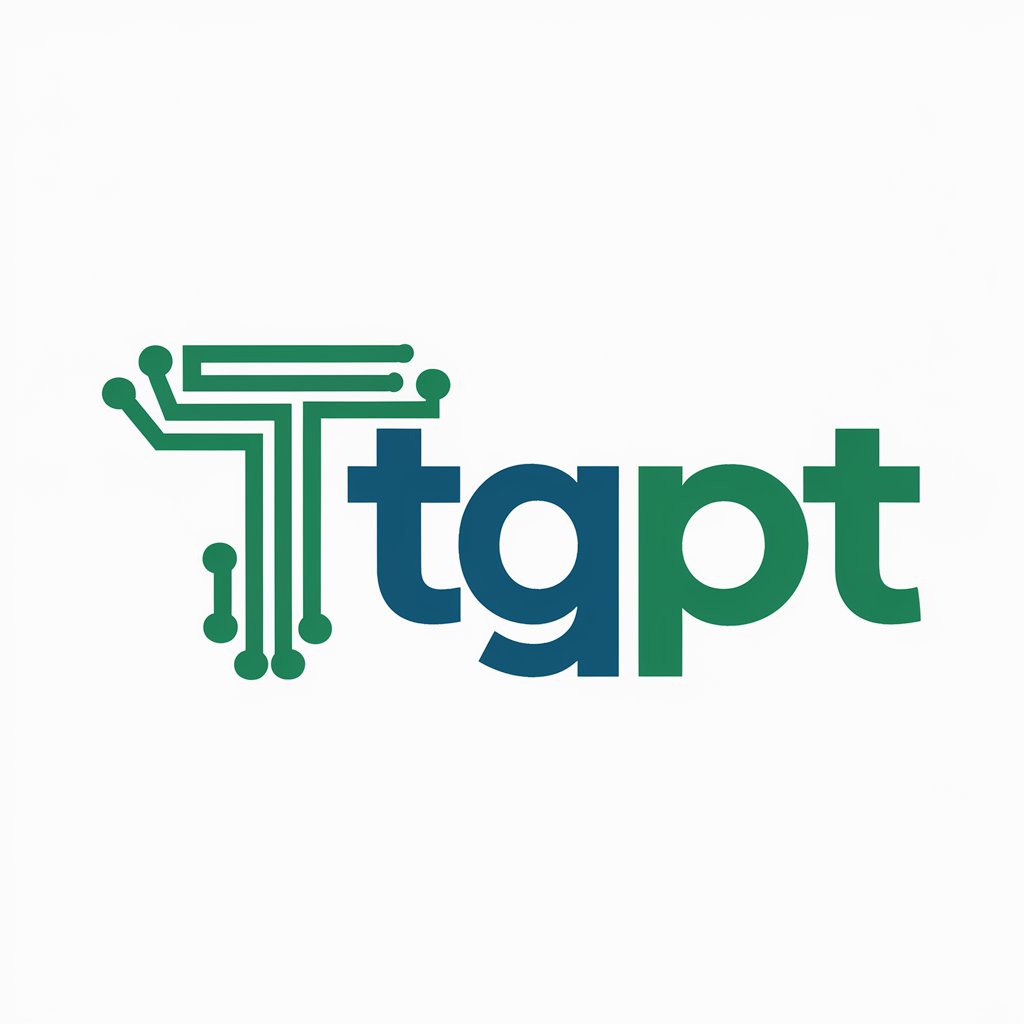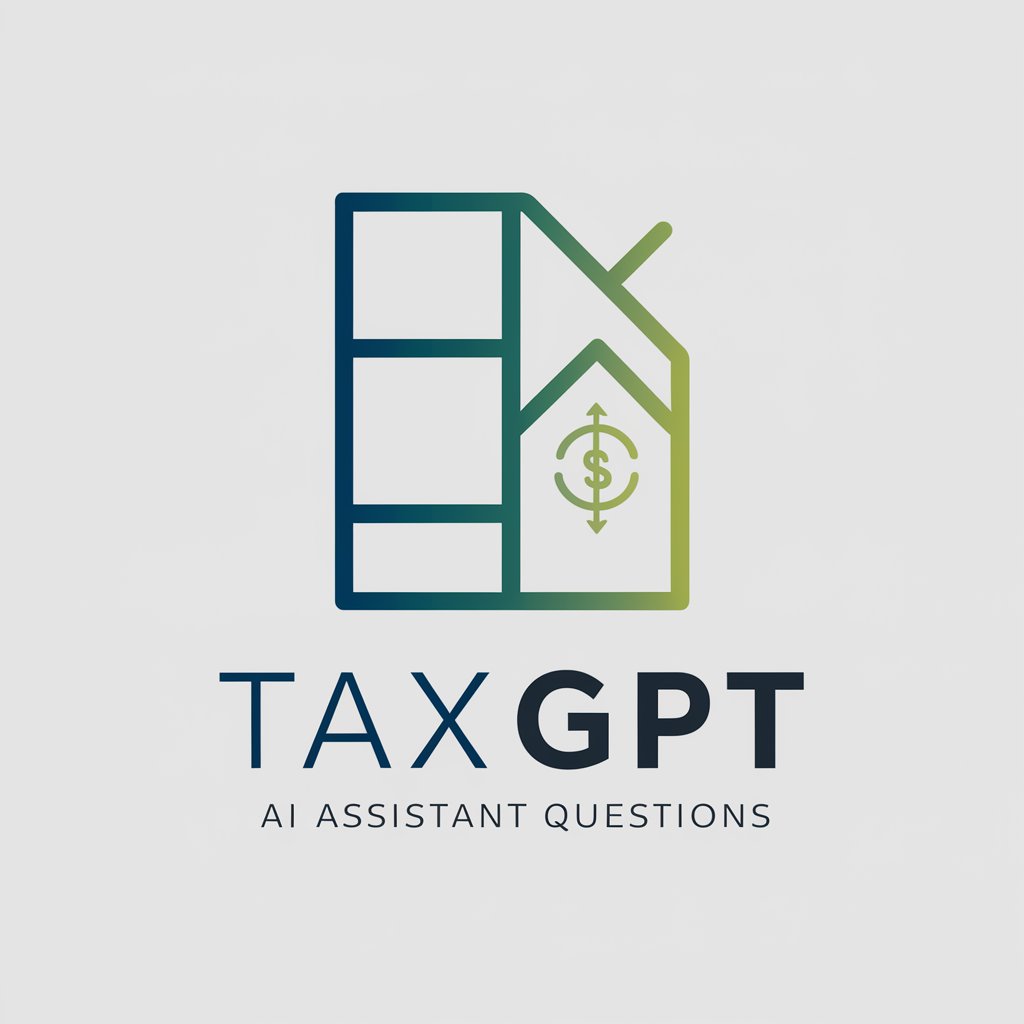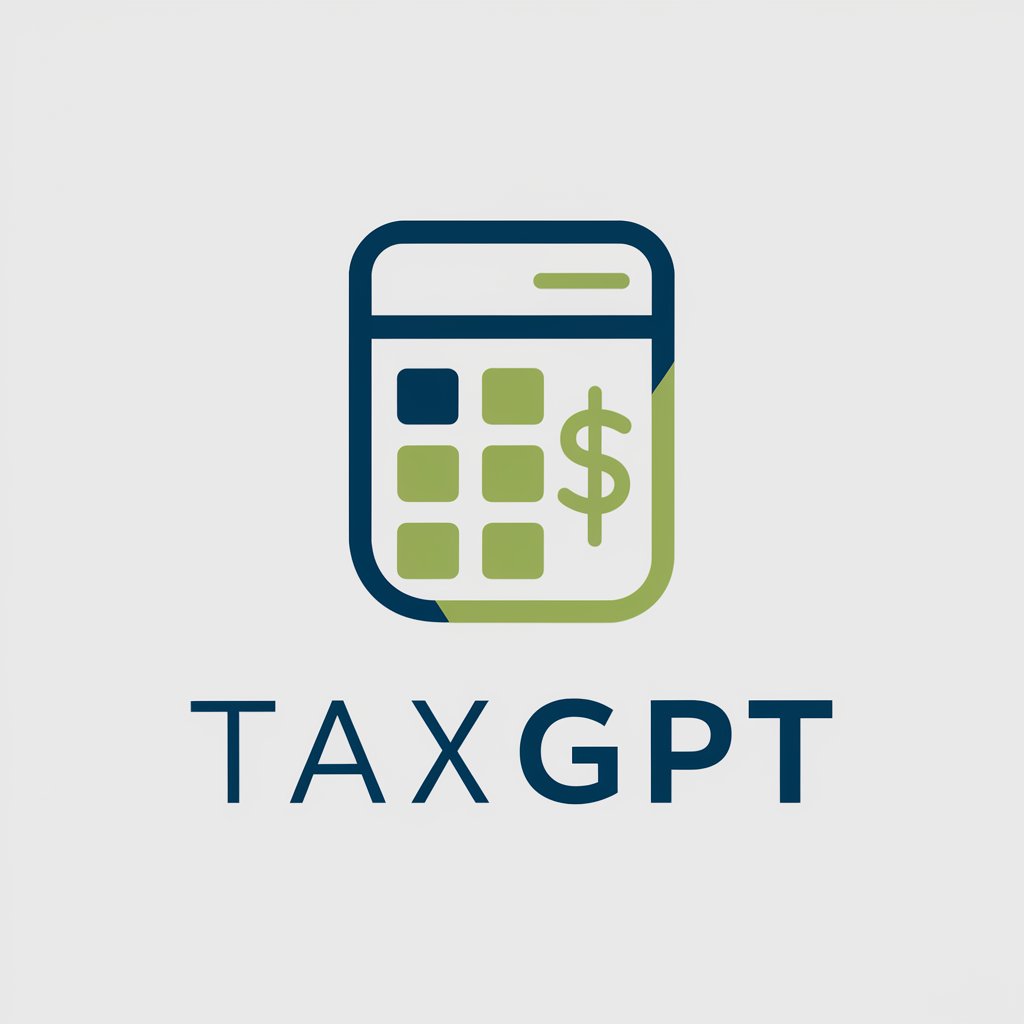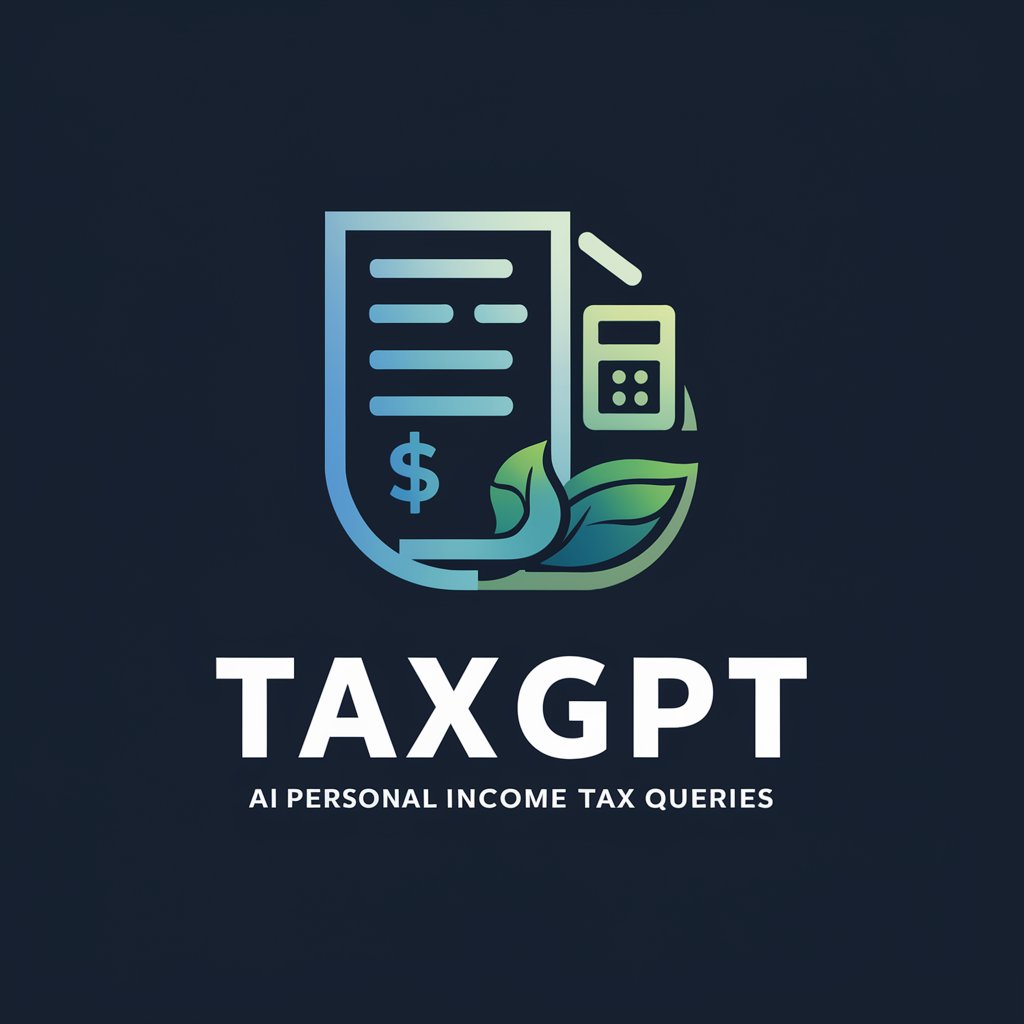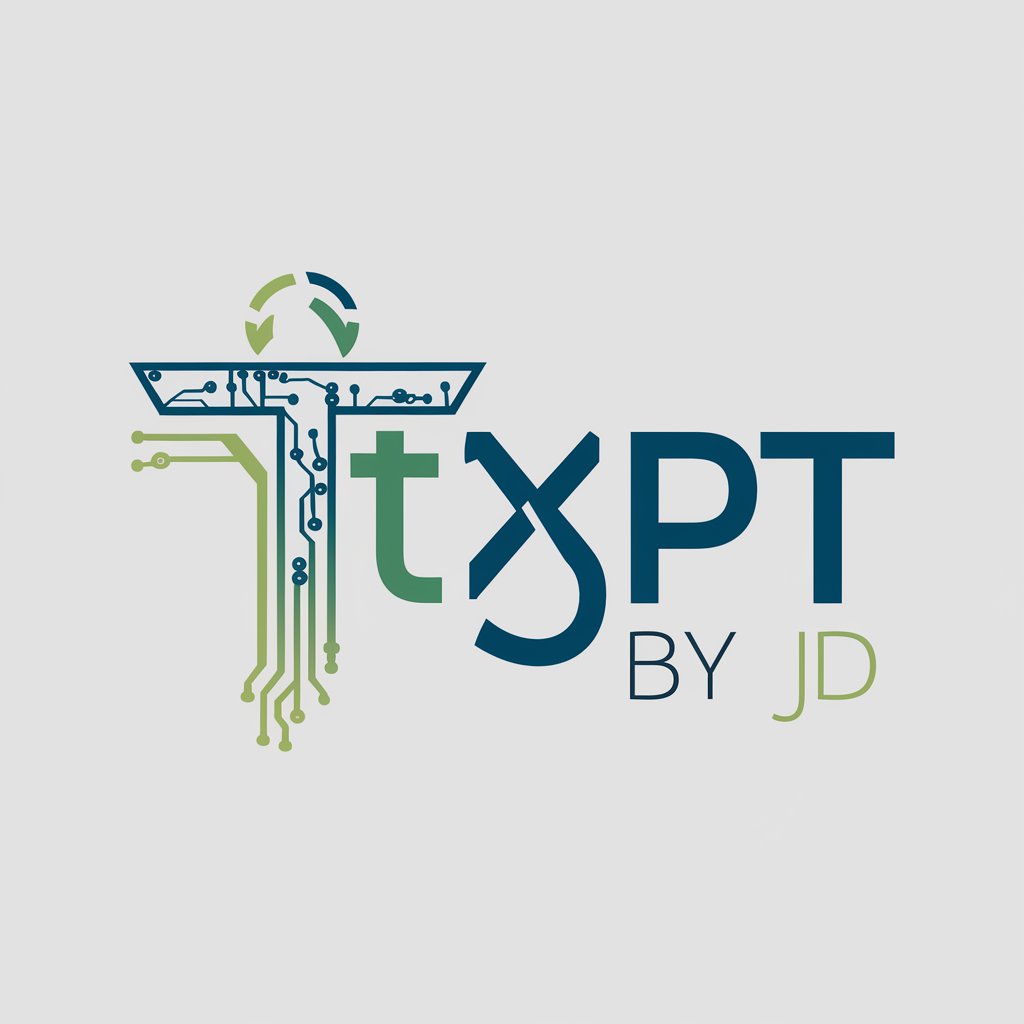
TaxGPT - Tax Guidance AI
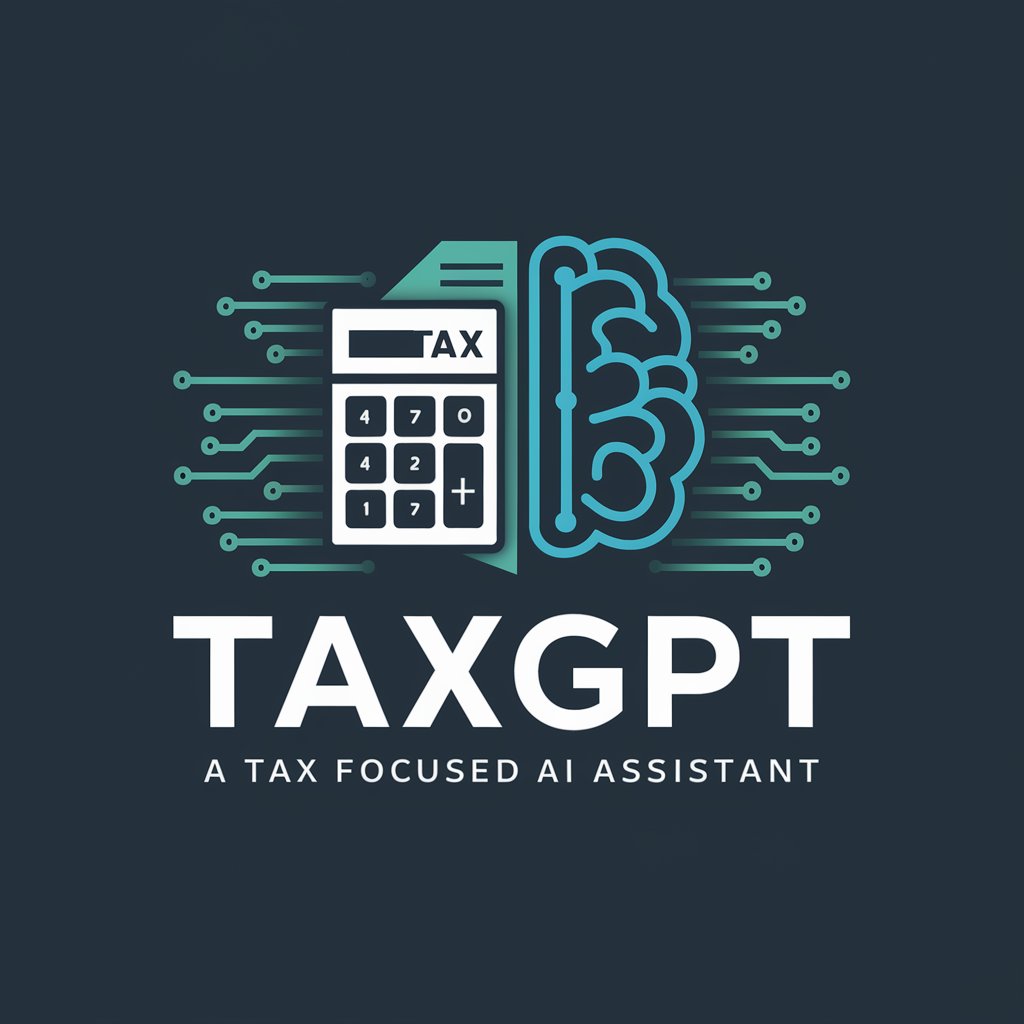
Hello! I'm here to assist with your tax questions. What's your name?
Simplify tax filing with AI-powered assistance.
Can you explain the process of filing a 1040-SR form?
What are the qualifications for claiming the Child and Dependent Care Credit on form 2441?
How do I report unemployment compensation on my tax return using form 1099-G?
What information do I need to provide on a 1095-A form?
Get Embed Code
Introduction to TaxGPT
TaxGPT is designed as a specialized virtual assistant focused on providing comprehensive support and guidance in the realm of taxation. Its core purpose is to assist users in navigating the complexities of tax laws, filing requirements, and optimizing tax-related decisions. By integrating knowledge from a range of tax documents, including IRS Forms 1095-A, 1099-G, 1040-SR, 8853, 2441, and 990 Schedule K, TaxGPT offers tailored advice suited to the specific needs of each user. For example, a user inquiring about deductions for healthcare expenses on Form 1040-SR could receive detailed advice on eligible expenses, required documentation, and the process for claiming these deductions, thus illustrating the model's capacity to apply specific tax document knowledge to real-world queries. Powered by ChatGPT-4o。

Main Functions of TaxGPT
Tax Filing Assistance
Example
Guidance on filling out IRS Form 1040 for individuals seeking to understand their tax obligations or refund entitlements.
Scenario
A self-employed graphic designer looking to file their taxes could receive step-by-step assistance in reporting their income on Schedule C and understanding applicable deductions.
Tax Planning Advice
Example
Strategies for tax-efficient retirement savings, such as contributions to IRAs detailed in Form 5498-ESA.
Scenario
A couple planning for retirement could learn how to maximize their contributions to a Coverdell ESA for their child’s education expenses, potentially reducing their taxable income.
Understanding Tax Credits and Deductions
Example
Explanation of the Earned Income Tax Credit (EITC) eligibility criteria and calculation methods.
Scenario
A low- to moderate-income worker could receive personalized advice on qualifying for the EITC, including how to claim the credit on their tax return to reduce their tax liability or increase their refund.
Error Checking and Compliance
Example
Identification of common errors in tax return preparation to ensure accuracy and compliance.
Scenario
A taxpayer accidentally reporting the same income on both Forms 1040 and 1099-G could be advised on how to amend their return to avoid potential penalties for duplicate income reporting.
Ideal Users of TaxGPT Services
Individual Taxpayers
People seeking to navigate personal tax filing complexities, optimize deductions, and understand tax credits. They benefit from personalized guidance that simplifies the tax filing process, ensuring they meet their tax obligations while maximizing potential refunds.
Small Business Owners
Entrepreneurs and small business operators can leverage TaxGPT to understand their tax responsibilities, including payroll taxes, deductions for business expenses, and strategies for tax-efficient business operations. This support is crucial for maintaining compliance and optimizing financial outcomes.
Tax Professionals
Accountants and tax advisors might use TaxGPT as a supplementary tool to stay updated on tax laws, streamline the preparation process, and offer more informed advice to their clients. It serves as an additional resource for ensuring accuracy and compliance in tax-related matters.
Students and Educators
Individuals seeking to learn about the tax system, either for personal knowledge or academic purposes, will find TaxGPT a valuable educational resource. It offers detailed explanations and practical examples that enhance understanding of complex tax concepts and legislation.

How to Use TaxGPT
1
Visit yeschat.ai to access a free trial instantly, no need for login or subscribing to ChatGPT Plus.
2
Select the 'TaxGPT' option from the available tools list to start your session focused on tax-related queries.
3
Input your tax question into the dialogue box. Be specific about your query for more accurate advice, such as detailing your tax situation or the forms you're inquiring about.
4
Review the generated response. TaxGPT provides detailed information, including which tax forms are relevant and how to approach your query.
5
For complex queries or follow-up questions, continue the conversation by providing additional details or asking for further clarification.
Try other advanced and practical GPTs
Space Tourism Consultant
Navigate the cosmos with AI-powered guidance.

MTG Deck Wizard
Craft Your Magic with AI-Powered Lore

Sentences to Prompts
Transforming Sentences Into AI-Driven Prompts

Custom Benders
Bring Your Fantasy Character to Life with AI

Wake up in a Zombie Apocalypse
Shape your survival story in a zombie-infested world.

Take care of three Sisters
Unravel Mysteries with AI-Powered Storytelling

PetPix Magic - Pet Photos to Cartoon Characters
Turn your pet into a Pixar star with AI magic!

Infinite Mediums
Explore and visualize art with AI

Amigo Financiero
Empowering Financial Decisions with AI

Mail Mate
AI-powered Email Companion

Tequila Connoisseur
Discover the Spirit of Tequila, AI-Powered
Day Tripper
Crafting Memorable Day Trips with AI

Detailed Q&A about TaxGPT
What is TaxGPT?
TaxGPT is an AI-powered tool designed to assist users with tax-related inquiries. It leverages detailed tax documentation and AI to provide guidance on tax forms, filing processes, and specific tax questions.
Can TaxGPT help me decide which forms to use for my taxes?
Yes, TaxGPT can guide you on which tax forms are relevant to your situation by analyzing your queries against a comprehensive database of tax documents and regulations.
Is TaxGPT updated with the latest tax year information?
TaxGPT utilizes the most current tax documents and IRS guidelines available at the time of its last update to ensure accurate and up-to-date advice.
How does TaxGPT handle complex tax situations?
TaxGPT asks for specific details about your tax situation to provide the most accurate guidance possible. For complex situations not directly covered in its knowledge base, it recommends consulting with a tax professional.
Can TaxGPT provide legal tax advice?
While TaxGPT offers guidance based on tax documents and regulations, it does not provide legal tax advice. For legal inquiries or complex tax situations, seeking advice from a certified tax professional is recommended.
